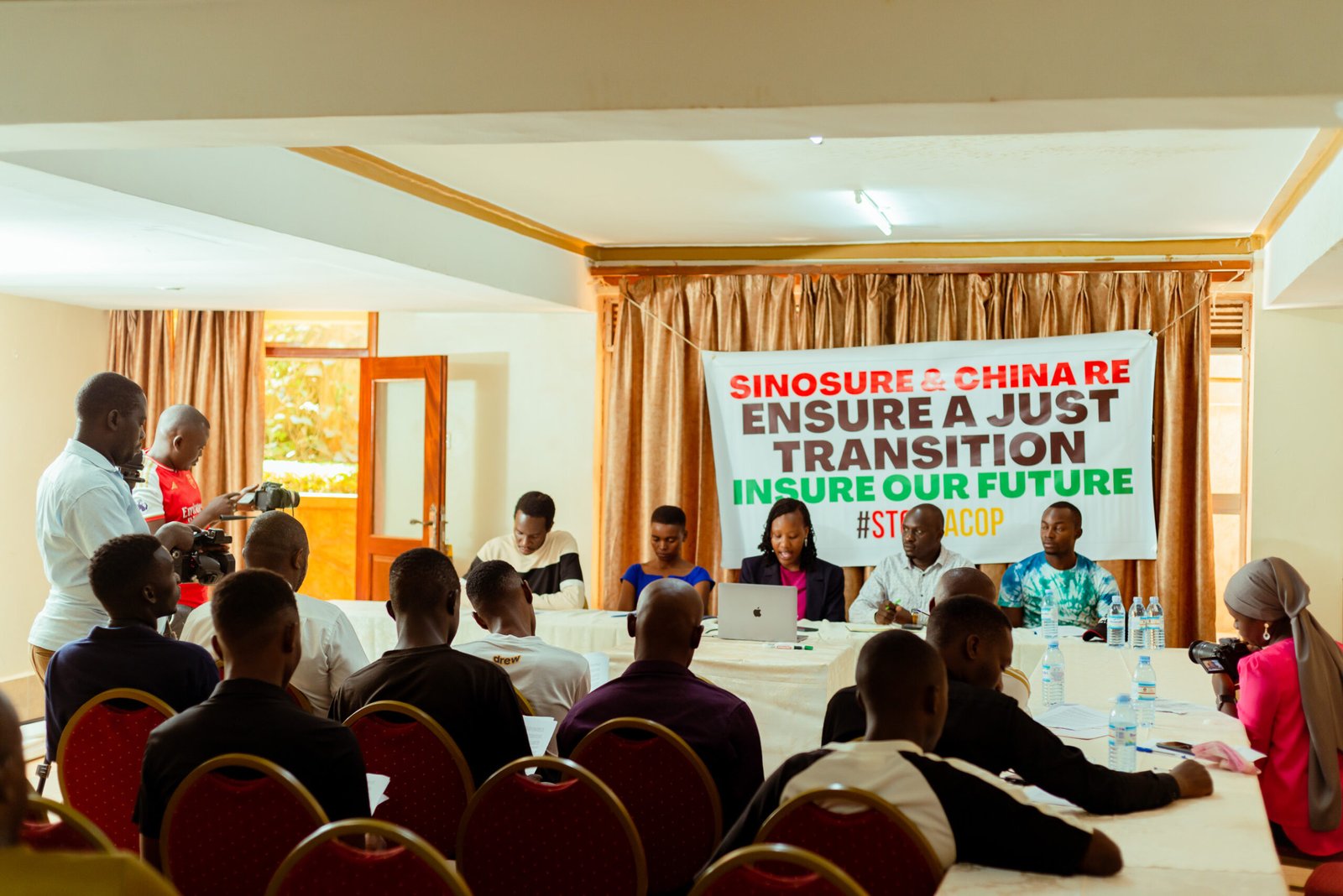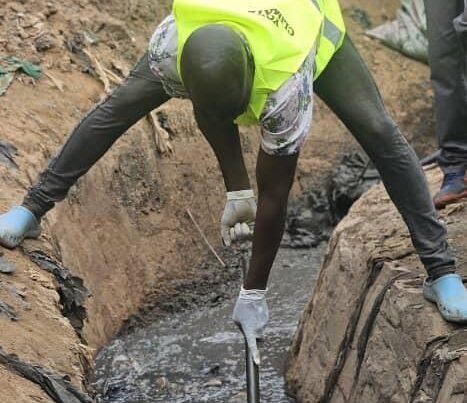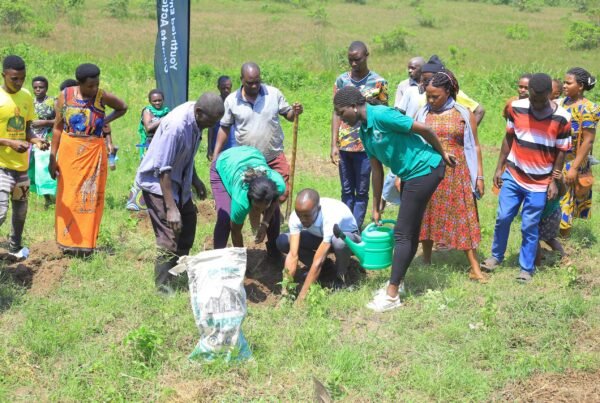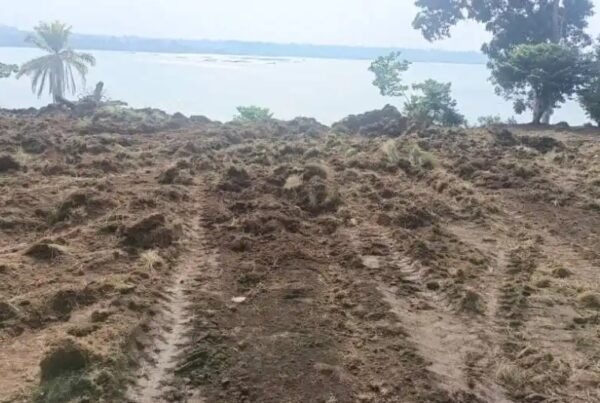On Saturday 25th May, African Liberation day, together with other Civil Society Organisations (CSOs) from Uganda and Tanzania, we urgently called on China President Xi Jinping to reconsider his planned financial support for the East African Crude Oil Pipeline (EACOP). The press briefing happened at Estelle hostel in Kira while our Tanzanian counterparts reached out through zoom, highlighting the severe negative impacts that the EACOP project poses on the environment and local communities.
Together with these CSOs, we work closely with Project Affected Persons (PAPs) along the pipeline route, particularly in Uganda’s Albertine area. We raised alarms over the deforestation and habitat destruction caused by the pipeline construction, which threatens biodiversity and crucial ecosystems. This environmental degradation undermines climate resilience by diminishing carbon sequestration capacities.
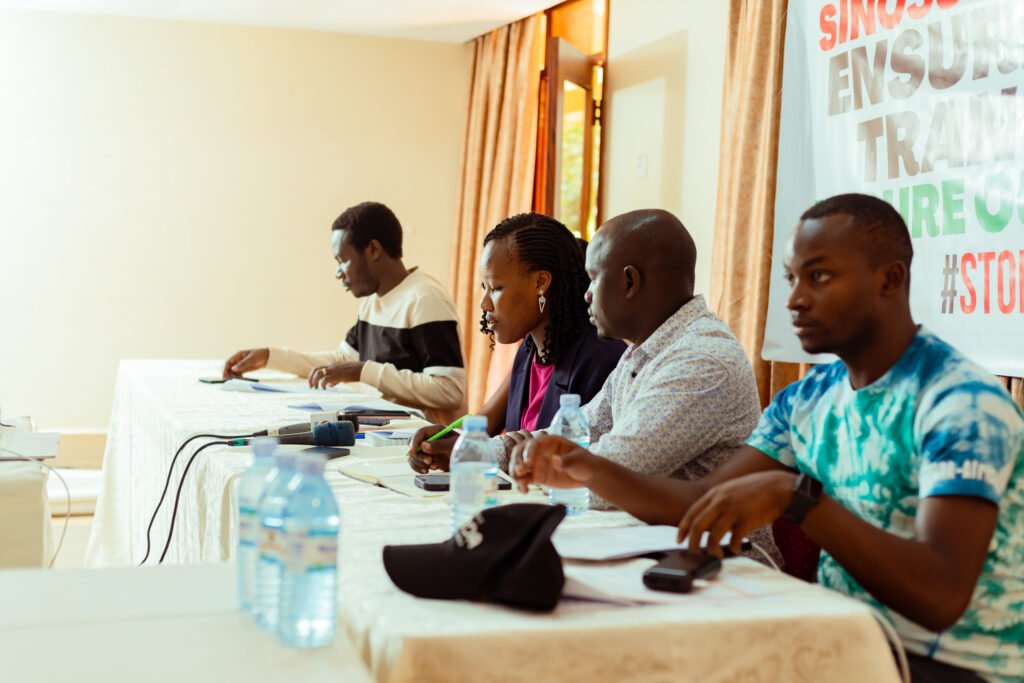
“We were hoodwinked. They told us that we are very lucky to be benefiting from government programs, gave us very little money that could not even buy half of the equivalent land that we had,” said Annet, one of the affected people from Kijumba in Hoima district. “They gave us money in installments, the last installments came when people had waited in vain and due to high poverty levels in the area, they had already used the money and so coludn’t afford land with the meagre funds they were given. In the whole of Kijumba, no one had even completed senior four. They used the ignorance of the people to hoodwink us and now we are seeing the consequences.”
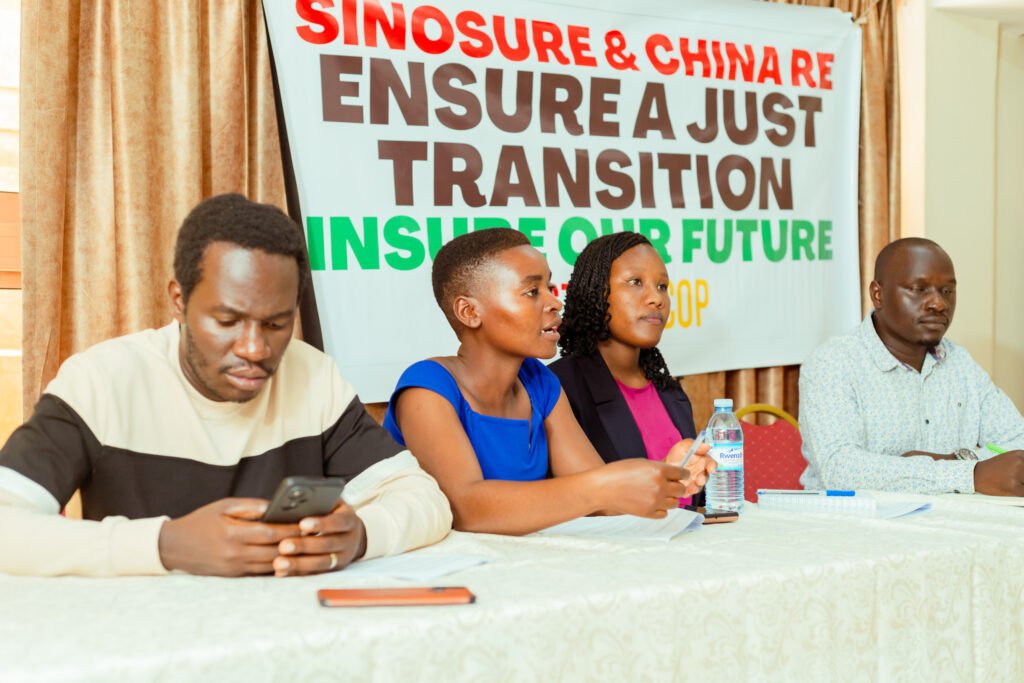
There is a significant risk of oil spills from the pipeline, which could devastate local environments and socio-economic structures. Contaminated water sources, soil degradation, and harm to wildlife and human health are among the dire consequences that these communities fear.
In our plea to President Xi, together with other CSOs, we detailed how many PAPs have been forcefully displaced from their ancestral lands and inadequately compensated, leading to increased food insecurity and restricted access to essential services like education and healthcare. Affected individuals have shared their distressing experiences, such as having to live with constant noise from pipeline construction, which has led to severe health issues, including mental illness.
An example from Kijumba illustrates the deep impacts on daily life: a resident, Oyewnga Innocent, has had to navigate a ladder over the pipeline just to reach his garden. Similarly, Rachel from the same area reports that local water sources have been compromised, with unfulfilled promises of boreholes for clean water. The chemicals used during pipeline construction have damaged crops, further threatening agriculture—a vital source of income for many.
In November 2023, Ugandan activists staged a protest at the Chinese embassy against the EACOP project, reflecting widespread local resistance.
The East African Crude Oil Pipeline (EACOP) Ltd is a UK-based private company, with shareholders including Total Energies (62%), Tanzania Petroleum Development Corporation (TPDC) and Uganda National Oil Company (UNOC) (15% each), and China National Offshore Oil Company (CNOOC) (8%). The project aims to construct a 1445km pipeline to transport crude oil from Butiaba in Hoima Uganda to Tanga in Tanzania.
Despite the discovery of oil reserves in Uganda in 2006, infrastructure challenges have delayed significant extraction efforts. President Yoweri Museveni initially preferred developing a refinery over a crude oil pipeline. However, the pipeline project has gained more traction due to the financial backing it attracts, compared to the refinery project.
Why are CSOs Writing to Xi?
Total Energies, the major shareholder in EACOP, faced financial hurdles as numerous banks, insurance companies, and credit agencies withdrew support due to environmental and human rights concerns, thanks to various calls from activists and CSOs allover the world. As of now, 29 insurance companies, 27 commercial banks, and several export credit agencies from France, the UK, Italy, Germany, and the African Development Bank have publicly declined to support EACOP.
In September 2022, President Museveni expressed frustration with Total Energies for potential delays influenced by the EU Parliament’s concerns, insisting that Uganda would proceed with or without their support to meet the 2025 oil production deadline.
Recently, The East African reported that Uganda’s Energy Minister was invited to Beijing to discuss funding the pipeline, highlighting ongoing negotiations with China’s export credit agency SINOSURE, though no final agreement has been reached.
Green Foster Action, alongside other CSOs, remains committed to protecting the rights and environments of affected communities. We requested to have a response from President Xi by June 10, 2024, emphasizing the urgency of halting financial support for the EACOP project to prevent further harm.
Here is the full statement:
